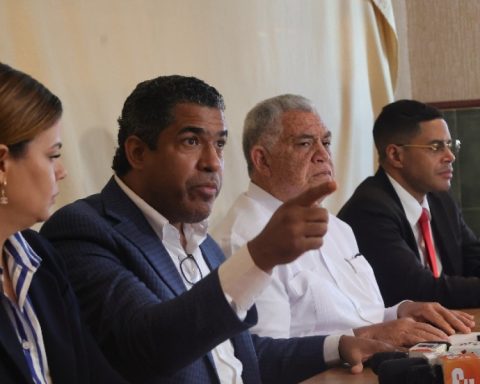Update the composition of the Chamber of Deputies to make it more federal? Nationalize that legislative body? Reform the Constitution or even draft a new one? Or perhaps it is simply a question of increasing the number of inhabitants fixed in the equation that allows establishing how many national legislators will be per district.
Those were some of the questions outlined by academics and political analysts consulted by Télam, days after the national census carried out this week, which revived old demands about the outdated composition of the body.
According to the national Constitution, representation in the lower house must be modified after each census, but the last adjustment was made by the military dictatorship, in 1983shortly before the recovery of democracy.
Almost 40 years later, the Chamber of Deputies maintains the same number of representatives per district as thendespite the distortions already visible in the 2010 census, when based on 40,117,096 inhabitants, the province of Buenos Aires should have added 30 more deputies and, on the contrary, the City of Buenos Aires, with 2.8 million of people, should have regressed, compared to Santa Fe and Córdoba, which were around 3.2 million citizens at the time.
“It is a debate comparable to the discussion of co-participation; it is about redistributing power and who is now at a disadvantage, clearly, is the province of Buenos Aires”Sergio del Piero
Now, with the provisional data from this week’s census, which counted 47,327,407 inhabitants, the distortion is presumed to be even more accentuated.
“Is a debate comparable to the discussion for co-participation; it is about redistributing power and the one who is now clearly at a disadvantage is the province of Buenos Aires; opening the agenda would be talking about winners and losers in terms of distribution of power; I think it is quite difficult for it to happen because it implies a great negotiation and an agreement of the 24 territorial units”, analyzed the graduate in Political Sciences, writer and teacher, Sergio del Piero.

The academic and researcher Roberto Bugallo proposed as a solution to the problem “modify” the equation established by the military dictatorship (with the enactment of Law 22,847 in 1983), which established one deputy for every 161,000 inhabitants or fraction of no less than 80,500 and “maintain” the minimum of five legislators in the case of the most depopulated provinces.
“You have to think at some point about making a new Constitution, according to the 21st century, that clarifies the conflicts that the country has,” said the professor of constitutional law and human rights at the UBA and at the National University of La Plata (UNLP) in dialogue with Télam.
Bugallo assured that “there is a crisis of representativeness” and explained: “60 years ago a deputy from a political party had a specific identity, now it is not like that, today there are few communicating vessels between a deputy from La Matanza and another from La Rioja from the same party; hence there is a crisis of representation”.
“You have to think at some point about making a new Constitution, according to the 21st century, that clarifies the conflicts that the country has”Robert Bugallo
“We have to shuffle and give again, although it is thought that it is never time for a reform; the Constitution has too many patches and lost coherence because it is a political pact of governability with a specific society at a specific time; today we have a formal Constitution that it is not fulfilled in infinity of things”raised.
For the political scientist and director of the consulting firm Zurban & Córdoba, Paola Zurban, “it would be necessary to make a balance of power” in Parliament, although she judged that “the conditions are not given to reach the type of political consensus necessary” that would enable, for example, an increase in the number of national deputies.
“I think that the main reason for these consensuses to get stuck is that the province of Buenos Aires would obtain a third of the Chamber of Deputies and what is most at stake at this time is the role that the provinces have in the public policies that it carries forward the national government,” he argued.
The thing is if Buenos Aires added the seats that correspond to it according to the increase in its population since 1983, it would have a weight greater than 30% of the Chamber.
“I think that the main reason for these consensuses to get stuck is that the province of Buenos Aires would obtain a third of the Chamber of Deputies and what is most at stake at this time is the role that the provinces have in the public policies that it carries forward the national government”Paola Zurban
In the antipodes of that proposal, the professor and researcher of the UBA Julio Burdman expressed: “I am not in favor of continuing to analyze the composition of the Chamber of Deputies in federal terms; I believe that Argentina should be brought to a system that nationalizes that body, and not federalizes itbecause in recent years it has been very similar to the Senate, with deputies who answer to the governor or to the district party”.
He explained that the Constitution foresees that the Deputies be “the representation of the Argentine people as a whole” and, for that reason, -he pointed out- “the representation of the chamber must be reformed and converted to the service of a project of Argentina, as a country, and not of the provinces as political units that confront the national State”.
Constitutionalist Eduardo Barcesat excused himself from giving an opinion on “electoral law” and only pointed out that “it is Congress” that should modify the representation of the provinces after the census because, he said, it is one of the “feasible forms of law.”
“It would be necessary to take Argentina to a system that nationalizes that body, and not that federalizes it”Julius Burdman
For her part, the academic specializing in public opinion Shila Vilker considered any change that implies increasing the composition of Congress “unfeasible” and assessed that, “in this context of frustration with political performance, promoting projects of this nature will only harm the majority” in front of the eyes of the citizenry.
All in all, the Chamber of Deputies is made up of rules and based on population data from the 1980s, when the country had 27,949,480 inhabitants. At that time, the current 257 seats were reached.


















